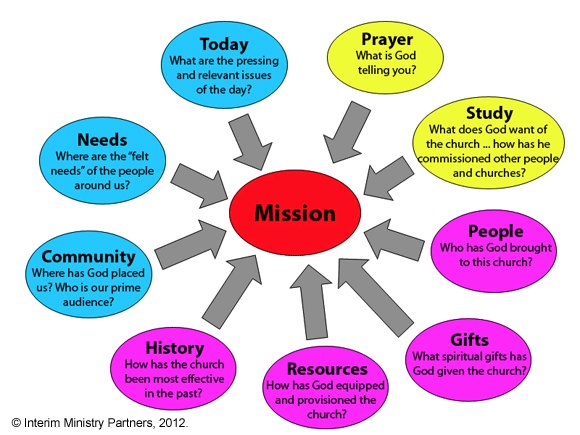And then, the motto insists, focus there... build on that... pour energy into what you do well.
Don't try to become a pitcher (for example) if you have a unique ability to field grounders. Don't attempt to become the world's greatest manager if (at heart) you are an entrepreneur. Know yourself. Recognize your strengths. And then put your emphasis where your aptitude is.
It is odd how rarely this maxim is cited in Christian circles.
Perhaps it reflects a Christian wariness about the dangers of pride and the temptation to self-sufficiency. There are strains of Christianity that encourage us to focus, instead, on weakness; to major in penitence and contrition. We love to quote Paul: "I delight in weaknesses... for when I am weak, then I am strong." We have trouble talking about "strengths," much less celebrating them.
But there is a flip-side. Paul does not invite us to embrace weakness for the sake of weakness. He encourages humility because it unleashes a strength that comes from God, an empowerment rooted in the Holy Spirit. In Christ, says Paul, we are strong, not weak! As Christians, we are meant to celebrate the power Christ gives us.
There comes a point when reveling in weakness turn out to be a lack of faith; when clod-kicking, head-hanging, self-deprecation becomes false modesty and an indicator of spiritual immaturity.
The Special Abilities the Spirit Gives Us
In this series ("Finding Your Church Mission"),* we are exploring how churches can discover their God-given mission by taking the time to listen to God. God has been speaking to your church about mission for a long time: through the words of Scripture... through answers to prayers... through your relationship with him.
But one of the most powerful ways God speaks to churches today is through the people and gifts he brings together in one place at one time for one purpose. God has gathered certain people to your congregation and, in doing so, given you important clues about your mission. (See Greg Anderson's article: "People in the Process of Mission.") And he has given your congregation certain "gifts" and "abilities" to accomplish the mission he has in mind for you. By paying attention to those gifts, you can hear the voice of God leading you to the mission he has in mind for your church.

Although the New Testament has a great deal to say about "spiritual gifts" (see John 14:1-31; John 15:1-27; John 16:1-33; Romans 12:3-8; 1 Corinthians 12:1-31; Ephesians 4:7-16; and 1 Peter 4:10-11, in particular), a few ideas stand out:
- God has always given (and still gives) spiritual gifts to his people. (We don't accomplish God's business through our own power and ability.)
- God has assembled certain gifts in every church-yours included. (There is intentionality and purpose in the gifts God distributes to the church.)
- The gifts are connected to the mission God has in mind for the church. (They help the church be unified and effective in accomplishing kingdom business. They are the tools God gives his people to accomplish his work.)
- By attending to God's gifts, you can discern his particular mission for your church. (God does not commission without equipping. By recognizing how God has equipped your church, you can hear him speak to you about mission.)
Pay special attention to the last item - by attending to God's gifts, you can discern his particular mission for your church. Churches have different and particular missions. The church in Jerusalem reached Jews; the church in Antioch reached Gentiles. The Smyrna church was called to persevere in persecution; the Laodicean church to "repent." Antioch was a relentlessly missionary church; Philippi and Thessalonica focused more on maturing new Christians.
Because of particular missions, churches were "gifted" in specific and different ways. Antioch had prophets who commissioned missionaries. Philippi had people with the gift of generosity (Lydia) who made teaching and maturing possible. Jerusalem had people with the gift of "knowledge" who understood Jewish history and Scriptures, endowing them to reach Hebrews more effectively. Corinth was gifted with tongues-speakers and miracle workers whose abilities convicted visitors to recognize "God is really among you."
In the New Testament, no single church had every spiritual gift. No two churches had exactly the same gifts. Each church had a specific mission and was equipped in specific ways.
Celebrating our Strengths
Recognizing and embracing the gifts God gives a church is not a sign of pride, but of faithfulness. It permits a church to identify God's unique equipping. It emboldens a church to accept the mission God has in mind for a particular group of people at a particular point in time.
It allows a church to "play to its strengths."

So... here are a few things for church leaders to consider as they examine the relationship between their church's gifts and their church's mission:
- Discover the gifts of your members:
Do you know how your people have been equipped by God's Spirit? If not, find out. Ask your members to take a "spiritual gifts inventory." Do some teaching on the gifts of the Spirit and help members recognize and celebrate the tools God gives them to do his work. - Recognize that the gifts of your people are not random or arbitrary:
God has "arranged" the gifts and people of your church "just as he wanted them to be" (1 Corinthians 12:18). By identifying the gifts of your members, you are detecting the will of God for your church... the business God has equipped you to address. - Identify where those gifts "cluster":
Does your congregation have a preponderance of certain types of gifts? Gifts of service, for instance? Or evangelism? Or worship? Or teaching and maturing? Every church has a "sweet spot." Do you know what that spot is for your people as a whole? - Trust you have been equipped for a mission:
Accept that God has not called your church to accomplish a mission for which he has not equipped you. A church that lacks significant gifts for witness and testimony is probably not called to be a missionary church. A church that has no prominent gifts for worship (gifts of music, for instance, or preaching) is probably not commissioned to spark the next revolution in worship leading. - Play to your strengths:
Once you've identified how your people are gifted, you have an opportunity to hear God's voice and to focus on God's desires for your church-rather than trying to force upon it some version of the church you want it to be. Find what your church is good at and then align your vision and mission with that.
Reveling in God-given strengths is a sign of a church's maturity and faithfulness. Playing to the Spirit's gifts is one of the surest ways to recognize and respond to God's mission for your church.
This is part of an ongoing series of messages from the partners at Interim Ministry Partners Discovering our Mission as God's Church. These messages are based on a proven set of moves a congregation needs to make as it is transitioning in its preaching leadership and wants to focus on its mission. The following chart illustrates the key moves and the direction each of these moves should help the congregation move. You can find this series listed in our Kingdom Leadership section of Heartlight.org













Comments
Have thoughts on this article? Leave a comment